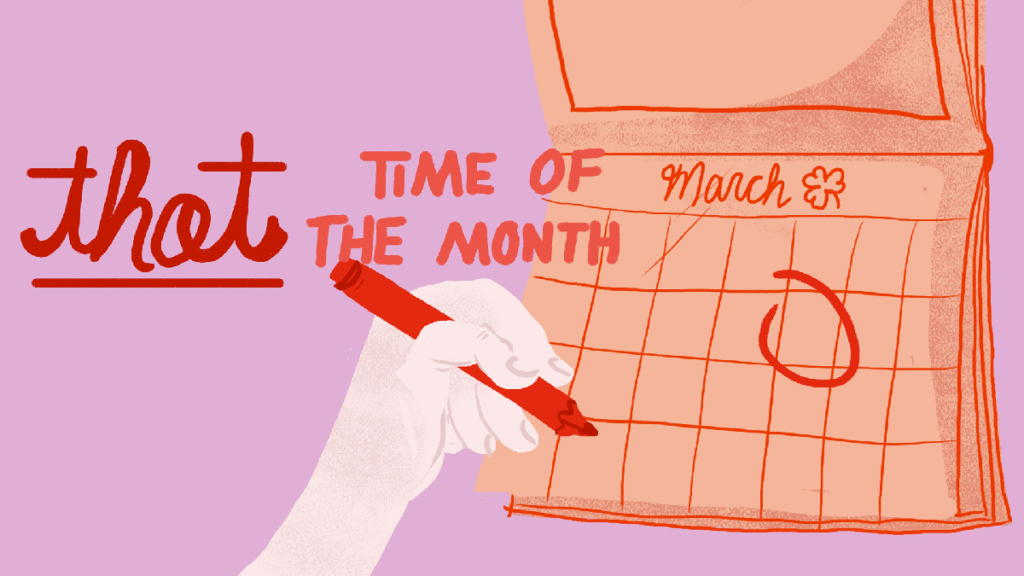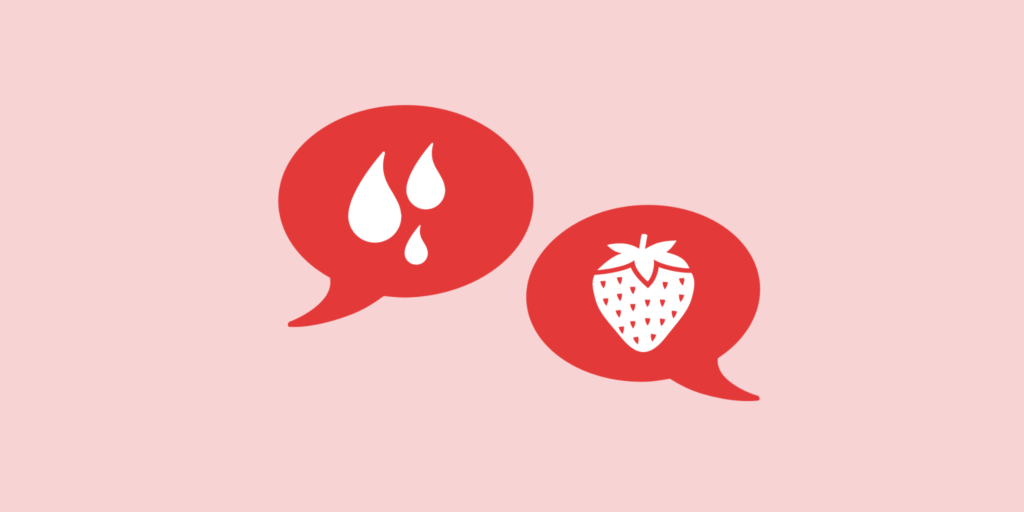Menstruation: Why Do We Use Euphemisms?
When I was in fifth grade, a friend had excitedly pulled me to one corner of the corridor to announce that she has gotten “it”. Unfortunately for her, I could not take part in her excitement because I could not decipher what “it” meant. Exasperated, she had gone on to explain, “you know, Shorir kharap” ( which, in Bengali, literally translates to “illness”). That friend of mine is now a huge advocate of sexual health and awareness. But talking about menstruation still remains tabooed. People would rather resort to menstruation euphemisms which range from being weird to funny. While researching for this article, I decided to look at the various nicknames given to menstruation.
Almost 50% of the world’s population menstruate every month but we still can not talk about it comfortably. A recent study found that women around the world use about 5000 different euphemisms for periods. In fact, ironically, periods too is a euphemism for the word menstruation. All of us, from all over the world, tend to use menstrual slang and colloquial terms, without realizing we are using them.

Some Other Names For “Aunt Flo”
Be it something as simple and straightforward as “that time of the month”, or something as dramatic as “riding the cotton pony”, we have all heard of and used many such slang. Some popular English menstruation euphemisms include “visit from Aunt Flo”, “Lady Business”, “Moon time”, “Crimson Tide”, “Red Wedding”. A few other interesting translations from other languages include:
- “Strawberry week” (from German),
- “Ketchup Week”, “Clown with a bleeding nose”, “To be under construction” (all French),
- “Communists in the Gazebo” (Danish),
- “Defrosting the Steak” (Spanish), and so on.
The debate on the need and impact of euphemisms might continue for long but these fun nicknames are definitely capable of making your “Blue days” (Japanese) almost tolerable.
The Indian subcontinent with its wide variety of languages has as many menstruation euphemisms. In Kannada, it translates to “being untouchable” (Muttuvige) or “off-day” (Raja). While in Malayalam, it is referred to as “staining” (theendari avuva). In most other languages, the slangs translate to monthlies, turns, stomach aches, and so on. While the Indian nicknames are not as quirky as the English ones, they do point to some bigger underlying issues.

Why Use Euphemisms?
For as long as people have menstruated, they have avoided talking about it. Menstruation has been stigmatized throughout history. Be it in religious texts, or private journals of men and women from the 17th century, we have not credited menstruation for how natural it is. Our modern-day menstrual slangs are driven by the same stigma. Across geographies, young girls are taught to be ashamed when “their motherland is bleeding” (Turkish).

What’s The Problem?
I would be lying if I said I have never used these names myself. No denying, it is a lot more fun and less awkward to say that “granny’s stuck in traffic” than having to tell them that you are bleeding. Yet, it is important for us to understand that euphemisms are detrimental to the process of normalization of menstruation. Code words are not used to describe activities that do not have any history of stigma attached to them ( Walking with your legs is said in the same way by laypeople and by clinicians).
When a young girl has to secretly hand out sanitary napkins to her friends in school, skip school on days of menstruation and use code words to refer to what she is going through, she grows up learning to be ashamed of her body. This cycle of shame that sets in during one’s childhood later grows into body illiteracy and alienation. This hinders people’s abilities to address any issues they are facing, even to doctors.

Conclusion
The point is not to make everyone stop using euphemisms but to be aware of why and when we use them. The language we use is a mere reflection of what we feel. The problem thus might not be with the usage of certain words. It is with the system that normalizes talking off bodily processes in hushed tones and code words. We can not shame or school people into doing something, but we can meet where they are and guide them from there. The goal is to change the system by changing our attitudes, one person at a time. The next time, a girl wants to talk about her periods, she should be able to do so without having to come up with clever euphemisms or a classmate giggling at her. The task is ours, and the practice begins now.
Graphic design by: Ruta Shelke
Author


1 thought on “Menstruation: Why Do We Use Euphemisms?”
Pingback: Week 7 Prototype :: – Lillian Kim Communication Design Studio V